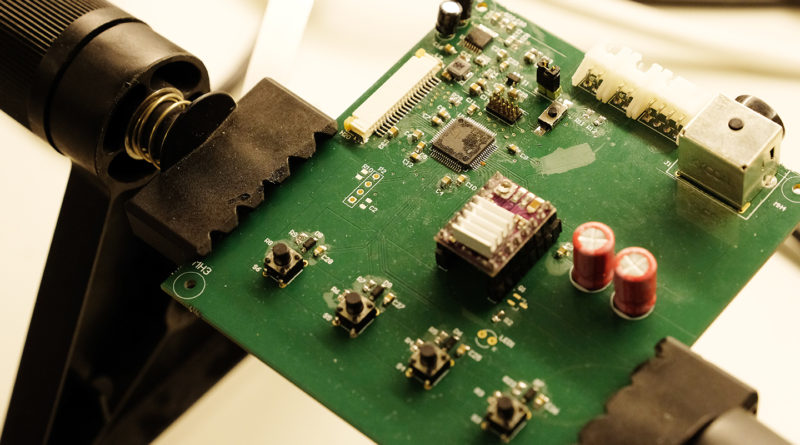FemIoT
FEM IoT
ABSTRACT
L’Internet de les coses (IoT) fa referència a la interconnexió digital d’objectes diaris amb internet, que permet tenir un control integral de l’estat de l’objecte. Consisteix a enriquir diferents dispositius amb informàtica integrada i connectar-los mitjançant tecnologies estàndard. Això permet que diferents mecanismes es comuniquin i interactuïn ells mateixos, fins i tot entre ells, però també amb els controladors més centralitzats.
El IoT és un complex sector tecnològic format per tecnologies de maquinari diverses (sensors, actuadors), programari (algoritmes, plataformes de desenvolupament, plataformes de gestió) i analítica de dades (big data, intel·ligència artificial …) amb aplicacions sectorials totalment transversals tant en economia com en societat ( agricultura, indústria, consum, domèstica, serveis, seguretat …). Té una capacitat transformadora i habilitant de molts sectors i aplicacions, que és difícil de deslligar altres tecnologies.
IoT és un sector emergent basat en tecnologies de conducció com la connectivitat tant a alta velocitat com a cobertura elevada, l’alta capacitat de càlcul, la reducció de consum energètic, les tecnologies d’analítica de dades i l’aprenentatge, però també associada a reptes socials com la competitivitat industrial, la comoditat per automatització, mobilitat sostenible, reducció del consum energètic i digitalització de la societat. El concepte IoT, segons la seva àrea d’aplicació, pot adoptar substantius diferents. Si s’aplica a ciutats, s’anomena Smart Cities; però si s’aplica a la indústria, s’anomena IoT industrial, i en el cas dels vehicles s’anomena vehicle connectat.
En aquest sentit, la missió de l’agrupament FEM IoT es defineix com la que respon als reptes tecnològics de l’IoT relacionats amb el de les indústries capdavanteres a Catalunya, que podrien ser l’automatització i la mobilitat sostenible. És a dir, que volem dotar a la infraestructura de la ciutat intel·ligent mitjançant solucions IoT que permetin desenvolupar el sector de les ciutats intel·ligents, que està format per empreses de mobiliari urbà, serveis urbans, consultories tecnològiques i energètiques. A més, afegirem un dels casos d’ús més exigents per a la ciutat que és el vehicle autònom i connectat, contribuint a una de les indústries líders del país: la mobilitat.
Per dur a terme aquesta missió, el projecte està format per 2 subprojectes: a) infraestructura de carrer connectada i b) Valorització de dades IoT. Així doncs, volen cobrir les dues parts principals de l’IoT, que són l’adquisició de dades i la gestió de la comunicació entre els elements i, d’altra banda, com passar per dades a informació, com crear o millorar les aplicacions d’aquesta informació.
ABSTRACT
The Internet of Things (IoT) refers to the digital interconnection of daily objects with internet, which allows to have an integral control of the state of the object. It consists in enrich different devices with integrated computing and connect them using standard technologies. This enables that different mechanisms communicate and interact themselves, even between them, but also with the most centralized controllers.
The IoT is a complex technological sector formed by diverse hardware technologies (sensors, actuators), software (algorithms, development platforms, management platforms) and data analytics (big data, artificial intelligence…) with sectorial applications entirely transversals both in economics and society (agriculture, industry, consumption, domestic, services, security…). It has a transformative and enabling capacity of a lot of sectors and applications, which is difficult of untie other technologies.
IoT is an emergent sector based on driving technologies such as the connectivity both in high velocity and high coverage, the high computation capacity, the energetic consumption reduction, the data analytics technologies and learning, but also associated to social challenges like industrial competitiveness, convenience for automation, sustainable mobility, reduction of the energetic consumption and the digitalization of the society. The concept IoT, depending on its application area, can adopt different nouns. If it is applied to cities, it is called Smart Cities; but if it is applied to the industry, it is called industrial IoT, and in the vehicles case it is called connected vehicle.
In this regard, the mission of the aggrupation FEM IoT is defined as the one that responds the technological challenges of the IoT that are related to the one of the leader industries in Catalunya, that could be the automation and the sustainable mobility. In other words, that we want to endow the infrastructure of the smart city through IoT solutions that will allow to develop the smart cities sector, which is composed of companies of urban furniture, urban services, energy and technological consultancies. Furthermore, we will add one of the most exigent use cases for the city that is the autonomous and connected vehicle, contributing to one of the leader industries in the country: the mobility.
To carry out this mission, the project is formed by 2 subprojects: a) connected street infrastructure and b) IoT data valorisation. Thus, they want to cover the 2 principal parts of the IoT, which are the data acquisition and the communication management among the elements and on the other hand, how to go through data to information, and create or improve the applications upon this information.
Proejct Budget: 3’995’319 €
Leitat Budget: 78.433,13
Financial Framework: EMERGENTS
Contract number: 001-P-001662
Start Date: 01/05/2019
End Date: 22/04/2022
Contact Manager: E. Bedoya


Aquest projecte està cofinançat pel Fons Europeu de Desenvolupament Regional de la Unió Europea en el marc del Programa Operatiu FEDER de Catalunya 2014-2020 amb un ajut de 1.997.659 €.

